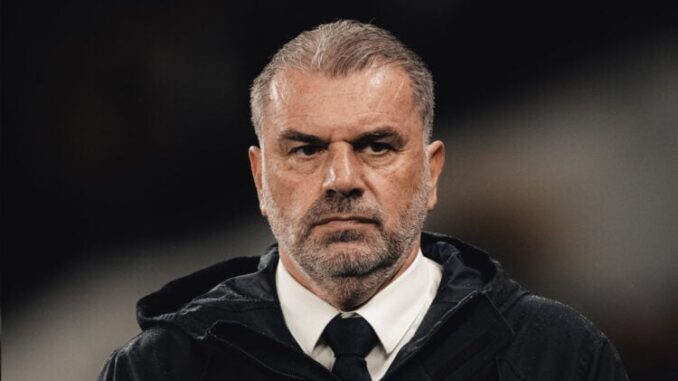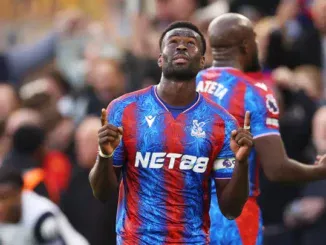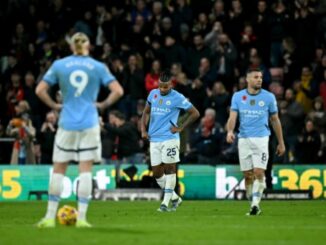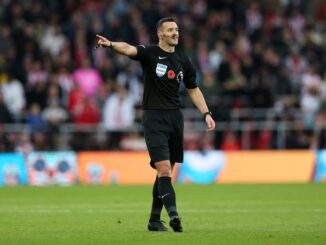
Ange Postecoglou has made a compelling start as Tottenham Hotspur’s manager, and his attack-focused style, often referred to as “Ange-ball,” has revitalized the team and its fan base. However, recent criticism from pundit Jamie O’Hara suggests that a questionable selection choice against Crystal Palace may have been a costly misstep. In this post, we’ll dive into the specifics of that decision, the critiques it attracted, and how it aligns with Postecoglou’s broader tactical philosophy.
The Build-Up to the Selection Critique
Tottenham’s rise in the Premier League this season has been marked by their offensive flair. This shift has turned heads across the league, with Postecoglou’s commitment to pressing and fast-paced play yielding generally positive results. But while this style has delivered excitement, it also raises questions regarding adaptability against more defensive opponents like Crystal Palace. Going into this match, Spurs were confident, but O’Hara questioned whether Postecoglou’s lineup choices maximized their potential, particularly in terms of defensive balance.
What Was the Alleged Selection Error?
O’Hara, a former Tottenham midfielder, pointed to Postecoglou’s decision to start 17-year-old Mikey Moore as part of the lineup. While Moore is a promising talent, O’Hara argued that fielding an inexperienced player in such a high-stakes game was risky. This move may have contributed to Tottenham’s difficulty in establishing a firm grip on the game early on. Critics believe that a more experienced option would have offered better stability and control, crucial against a defensively organized side like Palace.
Analyzing Postecoglou’s Tactical Philosophy
At the core of Postecoglou’s approach is fluidity and dynamism in attack. His philosophy emphasizes high pressing, versatility, and aggressive play, all designed to keep the opposition on the back foot. This has led Spurs to high-scoring games, with players like James Maddison and Son Heung-Min thriving. However, as O’Hara noted, while this offensive-first mindset is refreshing, it also demands careful team selection, especially against teams that thrive on disrupting flow and counter-attacking, like Palace.
Postecoglou is not known for caution, and his willingness to back young talent reflects a long-term vision of building a youthful, energetic team. But as his critics contend, leaning on such an inexperienced squad can be a gamble, particularly if the players aren’t yet familiar with the rigors of the Premier League.
Pundit Feedback: Was the Risk Worth It?
O’Hara is not the only pundit scrutinizing Postecoglou’s selection. Several commentators, including former professionals, argue that Tottenham might benefit from a slightly more balanced approach in squad rotation and game management. Despite Postecoglou’s desire to play on the front foot, pundits suggest he should consider adding more seasoned players in challenging away games to ensure stability in Tottenham’s lineup.
The Consequence of the Decision Against Crystal Palace
The game against Crystal Palace showcased Spurs’ vulnerability to well-organized defensive tactics. Palace successfully contained Tottenham’s high press and used calculated counters to expose gaps in the Tottenham defense. Critics argue that Postecoglou’s choice to start with an attacking lineup was predictable and may have played into Palace’s hands. O’Hara’s point is that a more controlled, cautious lineup might have given Spurs a better opportunity to settle into the game without being exposed early.
Looking Forward: What Could Change?
So, should Postecoglou adjust his selection approach? According to pundits like O’Hara, there are key lessons here for Spurs’ manager. Instead of leaning solely on youth and offensive dynamism, integrating experienced players who can manage the pace and physicality of Premier League games might help create a more resilient team structure. In matches where opponents look to sit back and counter, starting with a lineup that can handle defensive responsibilities and control the midfield may prove crucial.
Postecoglou’s philosophy undoubtedly brings excitement, but with it comes a learning curve. Adapting his tactics without compromising his vision could be the key to sustained success for Tottenham this season. The question is whether he’s willing to evolve his selection strategy based on the opposition’s strengths and weaknesses.
Ultimately, Ange Postecoglou’s management style and team selection are an ongoing story at Tottenham Hotspur. While pundits like O’Hara may have reservations about certain choices, the broader Tottenham fan base remains hopeful. The manager’s open-mindedness to evolve while staying true to his attacking ideals will likely define Spurs’ journey through the rest of this season.
By exploring a more adaptable approach to team selection, Postecoglou could ensure that Tottenham remains competitive and well-rounded, regardless of the opponent’s style of play.
For more insights, stay tuned to our blog as we continue to analyze Tottenham’s tactics and match-day strategies!



Be the first to comment